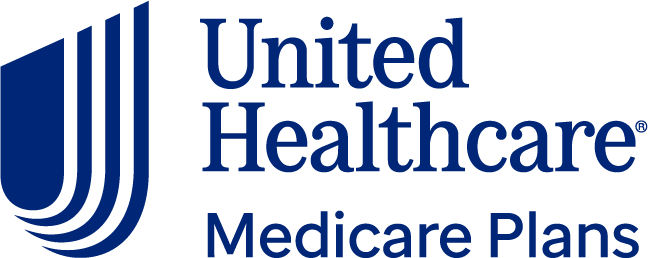What Are Medicare Part B Excess Charges?
Excess charges occur when a nonparticipating provider charges more than Medicare’s approved amount.

Many, or all, of the products featured on this page are from our advertising partners who compensate us when you take certain actions on our website or click to take an action on their website. However, this does not influence our evaluations. Our opinions are our own. Here is a list of our partners and here's how we make money.
When a doctor or other health provider charges a patient more than the Medicare-approved amount for medical services, supplies or equipment, the difference between that higher charge and the Medicare-approved amount is known as an excess charge.
What is Medicare assignment?
Just because a medical provider accepts Medicare patients doesn’t necessarily mean they’ve agreed to charge their patients no more than the amount Medicare approves.
Participating providers
When a doctor or other medical provider agrees in writing to accept the Medicare-approved amount as full payment for covered services or durable medical equipment, this is called accepting assignment, according to Medicare.gov. Providers who formally accept assignment for Medicare Part A and Part B services are known as participating providers.
If you see a participating provider, that means you owe only your Medicare deductible and coinsurance for covered services, no matter what this provider might charge patients who have other types of health insurance. Additionally, your participating provider will take care of submitting your claims to Medicare, and you often won’t have to pay anything until Medicare pays the provider.
Nonparticipating providers
Excess charges arise when a provider who accepts Medicare patients doesn’t accept assignment in writing. These providers are known as nonparticipating providers. If your provider is nonparticipating, they may or may not choose to accept assignment for specific individual services.
When doctors or other medical providers/suppliers don’t accept assignment, they may charge you more than the Medicare-approved amount for their services, but there are usually limits on how much they can charge.
Shopping for Medicare plans? We have you covered.

4.1
CMS Star Rating
from UnitedHealthcare

3.61
CMS Star Rating
How high can excess charges get?
There’s a limit — known as “the limiting charge” — on what nonparticipating providers are allowed to bill you for certain (but not all) Medicare-covered medical services and supplies.
Under this limit, nonparticipating providers that accept Medicare can charge you up to 15% more than Medicare’s amount for applicable services.
Additionally, when you use nonparticipating providers:
You may be expected to pay the whole charge upfront and wait until Medicare pays your provider to be reimbursed.
Your provider is supposed to submit your claim to Medicare and isn’t allowed to charge you for doing so.
Note: There’s no limit on the amount nonparticipating durable medical equipment suppliers can charge you for equipment and supplies. Before receiving durable medical equipment, make sure your supplier accepts assignment.
How common are excess charges?
According to a 2020 issue brief by the Kaiser Family Foundation, 99% of non-pediatric physicians accept Medicare. And 98% of doctors who accept Medicare are participating providers, so the vast majority of Medicare-approved visits shouldn’t result in excess charges.
Still, with the large number of medical providers practicing nationwide, even a tiny percentage of providers that don’t accept assignment can add up. This is why it’s important to always ask your provider if they accept assignment before scheduling appointments or ordering medical equipment and supplies.
Are excess charges allowed in all states?
Very few states offer protection from Medicare Part B excess charges. Here are some examples of those that do:
Connecticut: Only those enrolled in the Qualified Medicare Beneficiary, or QMB, level of the Medicare Savings Program can’t be charged excess charges. All other Connecticut Medicare Part B members are subject to excess charges.
New York: The Balance Billing Law of New York limits the amount of excess charges to no more than 5% over the Medicare-approved amount. Balance billing is when a patient is charged the amount left after their insurer pays its portion.
Massachusetts: The state’s prohibition against balance billing ensures that doctors who accept Medicare can’t charge excess charges to patients.
Minnesota: Minnesota state law prohibits Medicare excess charges with the exception of ambulance services and medical equipment.
Ohio: State law prohibits health care providers from balance billing, which means excess charges aren’t legal in Ohio.
To find out if your location limits or prohibits Part B excess charges, reach out to your state’s department of aging.
Does Medigap cover excess charges?
Only two types of Medicare Supplement Insurance, or Medigap, plans offer coverage for Part B excess charges:
Medigap Plan F: This comprehensive plan type is available only to those eligible for Medicare before Jan. 1, 2020.
Medigap Plan G: This plan type is available to new Medicare beneficiaries. It’s almost identical to Plan F, except it doesn’t cover the Part B deductible.
How can I avoid excess charges?
The best way to avoid excess charges (if your state permits them) is to make sure your provider or supplier accepts Medicare assignment before scheduling any medical appointments or purchasing medical equipment and supplies. To further protect yourself, consider purchasing a Medigap plan that includes Part B excess charges coverage.




